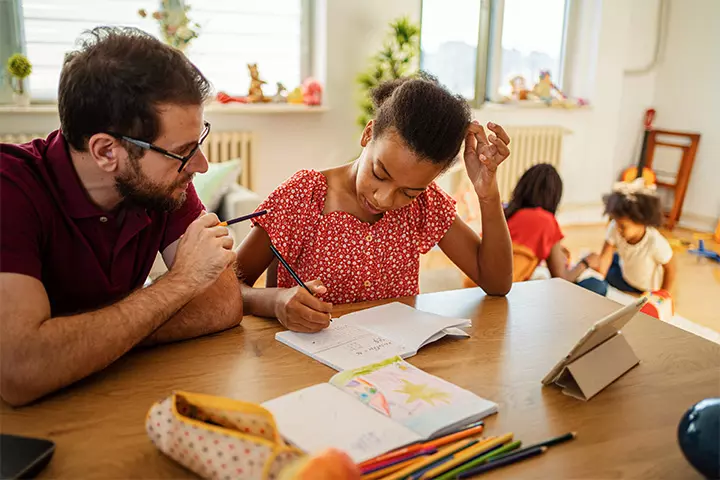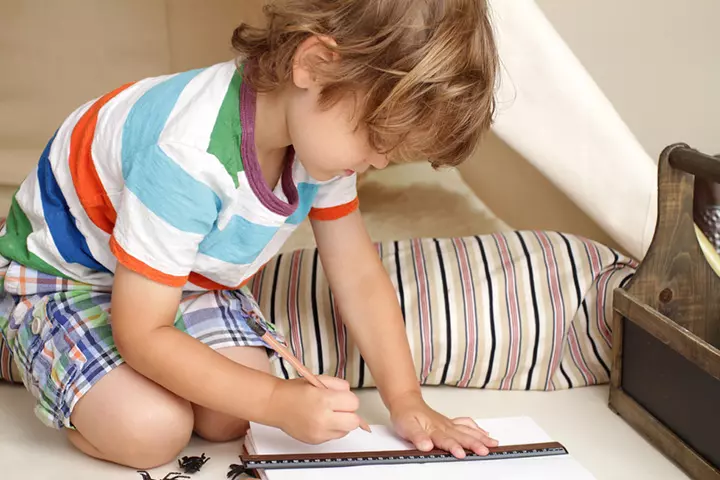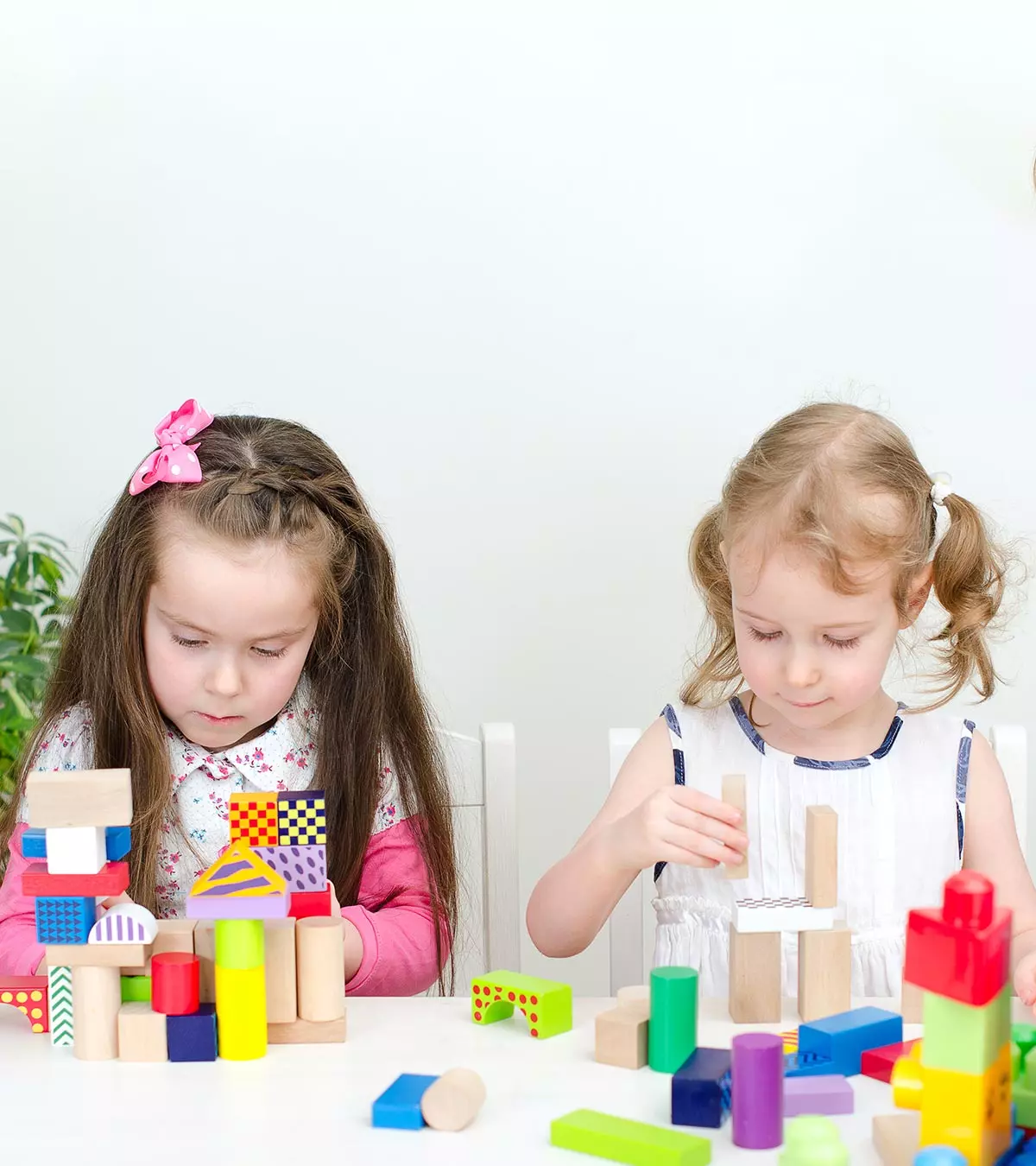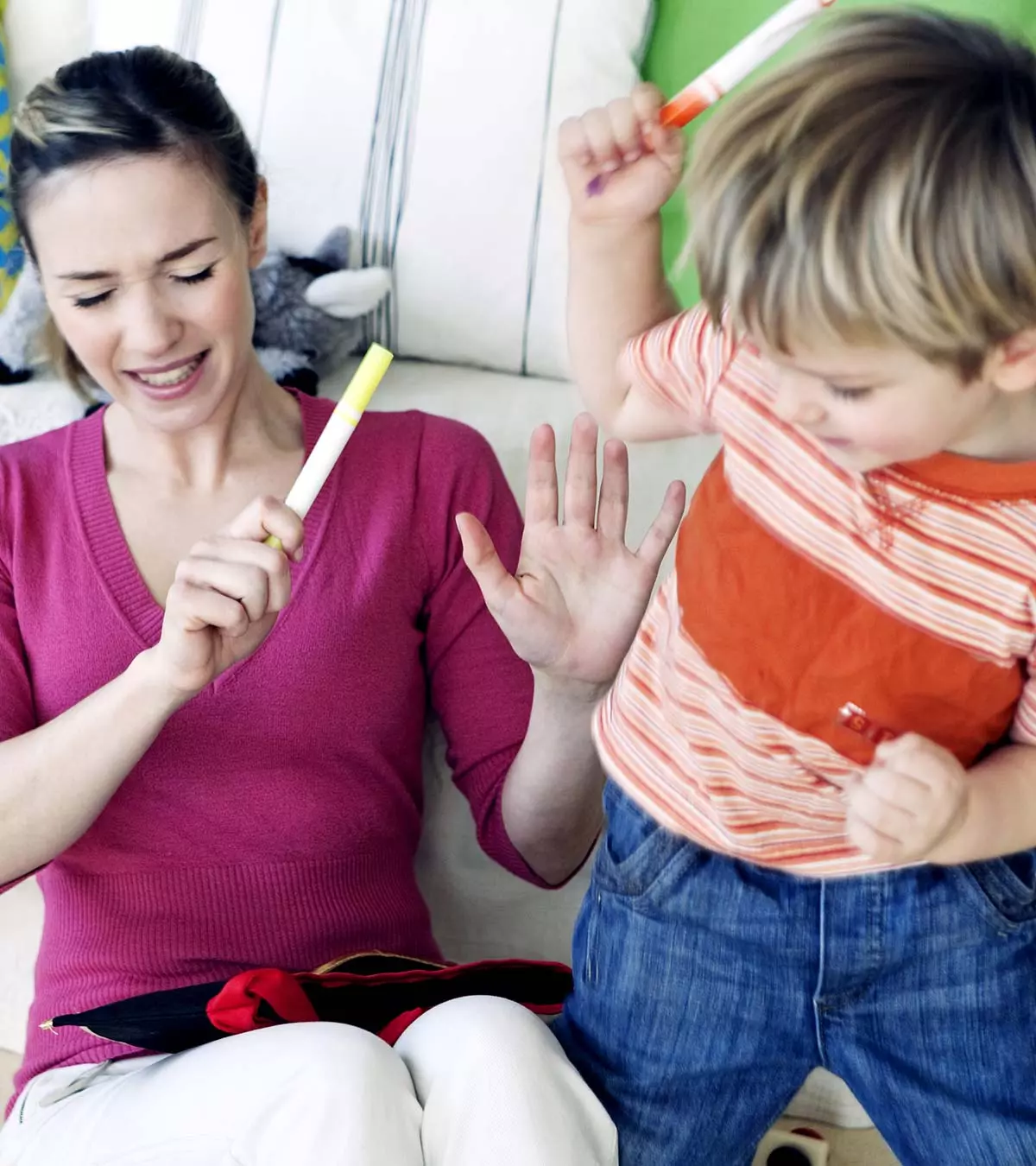
Image: Shutterstock
Young children are sensitive to several factors in their surroundings, which could break or make their self-belief and self-worth. Hence, it is important to understand how to build confidence in kids to create a secure self-image with self-respect at the core of their being. Being confident is essential for children since it plays a major role in determining their success in academics and other fields of interest. It also enables them to confront their challenges to reach their long-term goals. This post will help you with understanding how to build confidence in kids and offer some confidence-building activities for children.
Key Pointers
- Building children’s confidence can be achieved by encouraging them to participate in activities they enjoy, such as sports, music, or art.
- Boosting children’s confidence can also be done by setting achievable goals for them and helping them feel a sense of accomplishment.
- Children can develop their social skills and confidence in working with others by encouraging them to collaborate through team sports or group projects.
- To improve children’s confidence and self-esteem, teach them positive self-talk, encourage them to focus on their strengths, and acknowledge their efforts.
How To Build Confidence In Children
Building confidence in children requires consistent effort and acknowledgment. As children grow older, their self-esteem and confidence reflect in their personalities and eventually shape their lives. So here are some tips to help build a child’s confidence (1):
- Be a role model: Show your child how to be smart and confident through how you overcome difficult situations. Even when you don’t feel your best, try to carry yourself with confidence and be a source of guidance for them.
- Avoid getting excessively upset: Getting upset over minor things that don’t work out as planned will set a bad example for your child. Instead, show patience, pick yourself up, and face situations with a positive approach.
- Express your love: Children require love and attention, the lack of which may cause them to assume that they are incapable of being loved. Excessive assertiveness and failure in listening to them may affect their overall confidence, hinder their personality development, and their ability to self-love.
 Quick tip
Quick tip- Cheer for their successes: When your child accomplishes a task, even a small one, acknowledge it and appreciate them. Even the little achievements are big, so ignoring them may demotivate them.
- Allow imperfections: Often, things may not go as planned, leading to small disturbances in your child’s development. Your child needs your support and encouragement to overcome those setbacks confidently in such situations. Handle such situations with empathy and it will work wonders for your child.

- Let them showcase their ideas: Encourage your child to talk and indulge in communication to express how they feel about things. They will only respect you and your ideas if you do the same for them. In addition, giving them the confidence to speak up helps build self-esteem in children.
- Encourage them to try something new: Allow them to find their interests early on. For example, introduce a physical activity or various hobbies, such as dance, music, sports, or craft, and let them choose their favorite.
 Point to consider
Point to consider- Acknowledge their differences: Each child has different abilities. Some may be more intellectually smart, while some may be creative or excel in sports. Help them shine in the field they choose instead of forcing them to pursue your interests.
- Teach them how to embrace failure: Young children may be demotivated after experiencing failure. Thus, they should learn how to deal with failure, stand up, apply their problem-solving skills, and try harder. As parents, be supportive and encourage them to keep trying.
- Applaud their perseverance and hard work: When your child has worked consistently toward achieving something, applaud their hard work even if they don’t achieve their goal. This shows that winning is not as important as learning from the experience.

- Set achievable goals: Unrealistic goals only cause children to feel demotivated and stop trying if they don’t achieve them. Therefore, set short-term goals and plan easy targets that your child can achieve with some effort. The sense of accomplishment they experience will motivate them to work harder.
You would’ve heard the common saying, ‘Practice makes a man perfect.’ Similarly, the realistic goals you have set with your child need regular practice to be achieved. Monica, a mother of three, talks about her experience of being a shy child herself and also raising her shy daughter. Emphasizing the importance of practice, she says, “My daughter and I have been practicing what to say to strangers and acquaintances and practicing body language: looking at someone when they speak to you, smiling, waving, standing tall. Start small and work your way up to bigger things (i).”
 Do remember
Do remember- Don’t compare them to others: Accept your child for what they are. Drawing comparisons with other children leads to insecurity and jealousy, causing a negative development of self-acceptance. It also restricts the child from mastering the skills they are interested in.
- Allow independent decision-making: Give your child space and independence to make small decisions. This empowers them and makes them feel eligible to control small tasks in their daily life.
- Focus on their strengths: Instead of pointing out their faults and weaknesses, pay attention to their strengths. Praise them for it and then encourage them to use those strengths to improve themselves. This will motivate them to perform better in their favorite activities.
- Give them responsibilities: Start by assigning them small tasks around the household, such as watering the plants every day. Even if they do not enjoy the chores, they will unknowingly gain confidence from feeling needed around the house.
- Encourage positive self-talk: Help your child practice positive self-talk by teaching them to replace negative thoughts with encouraging words. This can improve their self-esteem.

Helping build confidence in children is essential, as research shows that teen girls tend to lack confidence compared with teenage boys. According to a short study, at age 14, most girls experienced their lowest confidence level. As seen in the chart, the level of self-assurance in girls stood at 27% against 30% reported in boys of the same age. These girls described themselves
as anxious and depressed, while the boys seemed more confident and fearless.

Declining self-confidence in young teen girls compared to boys
Source: Teen Girls Are Less Confident Than Boys & It’s Affecting Their Futures; YPulse/The Confidence Code for GirlsConfidence Building Activities For Children
Here are some fun activities to help boost confidence in children:
1. Mirror box
For this activity, you need a cardboard box and a mirror. Make a hole in one side and place the mirror facing the opposite side of the hole. Now, ask each child to look inside the box individually and tell you what they see. When they see themselves in the mirror, tell them that they are looking at the most special person. Loving themselves is the key to a more confident and secure personality.
2. Organizing

Get a piece of paper, pencils, and a ruler. Ask the children to draw four columns: one each for the date, serial number, task to be done, and deadline. This activity will help them organize their priorities. When they are clear about what needs to be done, they will approach tasks more confidently.
3. Self-description
In this group activity, each child should describe themselves positively in five lines. Once done, the group must discuss and add one more line to those five lines. This will make the children feel acknowledged and liked by their peers, boosting their confidence.
 Quick tip
Quick tip4. Dance to the rhythm

Most kids love to dance, but some may be too shy to loosen up. This activity requires you to blindfold all the children and ask them to shake to the music you play. When the children realize no one is watching them, they will feel less shy and let themselves loose. This boosts their confidence by making them comfortable to loosen up.
5. Story building
Encourage children to speak up with this storytelling activity. Start by framing the first sentence, and then ask each child to pitch in by adding the next line to the story. Ensure that everyone receives a turn. Public speaking helps children be more bold and articulate in front of a crowd, thus boosting their confidence.
6. Self-assessment
This activity can be done at the end of each day. Take five minutes to ask the child to remember everything they did throughout the day. Now, ask them if they believe they were good, bad, or moderate and how they can improve themselves the next day. This activity is a great way to deal with issues regarding esteem in children and builds a sense of competence.
7. Cooking
Cooking is an essential life skill that every child should learn. When children cook or bake with their friends or siblings, they engage in multiple tasks such as choosing ingredients, measuring, and following a recipe. Learning cooking will make them self-sufficient and the end results will give them a sense of satisfaction, helping them build confidence.
8. Hiking
Activities such as hiking or rock climbing test children’s resilience and physical fitness. When done in groups, these activities teach the importance of teamwork. It will also encourage children to connect with nature and spend time outdoors. Completing such tasks will give your child a significant boost in confidence.
Frequently Asked Questions
1. How can a shy child gain confidence?
If your child is shy, you may help them gain confidence by:
- Giving them time to open up and not force them to mingle at gatherings. It may help to not give them too much attention.
- Practicing role-playing at home, such as acting as friends with each other or enacting different situations to observe their behavior and help them overcome their shyness.
- Not comparing them to others.
- Being a role model for them and showing how confident you are.
2. What destroys a child’s confidence?
Some of the things that can destroy a child’s confidence include:
- Shielding them from responsibilities
- Overprotecting and not allowing them to make mistakes
- Shouting at them for making mistakes
3. Why is confidence important in school?
Confidence is important in school because it promotes academic success, enhances social interactions, and boosts overall well-being. When students have confidence in their abilities, they are more likely to participate actively in class, take on challenges, and strive for excellence. This can lead to better academic performance and a positive learning experience. Additionally, confidence allows students to engage with their peers and teachers, fostering healthy relationships and collaboration. Lastly, confidence contributes to a sense of self-worth and resilience, promoting overall well-being and a positive mindset in the school environment.
4. Why do my children lack confidence?
Children may lack confidence due to fear of failure, negative experiences, comparison to others, low self-esteem, bullying, or academic pressure. To boost their confidence, provide a nurturing environment, offer support, focus on their strengths, and encourage them to take risks and try new things.
Some kids acquire confidence quite naturally, whereas others may struggle with a lack of confidence. A confident child who receives positive reinforcement on the daily is more likely to think positively, have a strong self-image, and accomplish tasks more efficiently. In addition, the attitude parents instill in young children helps shape their personality. Therefore, the earlier you start building confidence and healthy self-esteem in children, the better and more beneficial it is for their future.
Infographic: More Activities To Build Confidence In Children
Having confidence is a trait that a person attains during their lifetime. As parents, you can help your child develop confidence and self-esteem from a young age. The infographic below presents simple activities you can include in your children’s routine to help them grow into confident individuals.

Illustration: Momjunction Design Team
Illustration: How To Build Confidence In Kids: 15 Tips And 8 Activities

Image: Dall·E/MomJunction Design Team
This video will explore how to help children build confidence and self-esteem, so they can lead happy and successful lives.
Personal Experience: Source
MomJunction articles include first-hand experiences to provide you with better insights through real-life narratives. Here are the sources of personal accounts referenced in this article.
i. Raising an introverted child in an extroverted world.https://everydaymamas.com/raising-an-introverted-child-in-an-extroverted-world/
References
- 12 Tips For Raising Confident Kids.
https://childmind.org/article/12-tips-raising-confident-kids/
Community Experiences
Join the conversation and become a part of our nurturing community! Share your stories, experiences, and insights to connect with fellow parents.
Read full bio of Shreshtha Dhar
Read full bio of Kavita Kankani
Read full bio of Harshita Makvana
Read full bio of Apoorva K

















